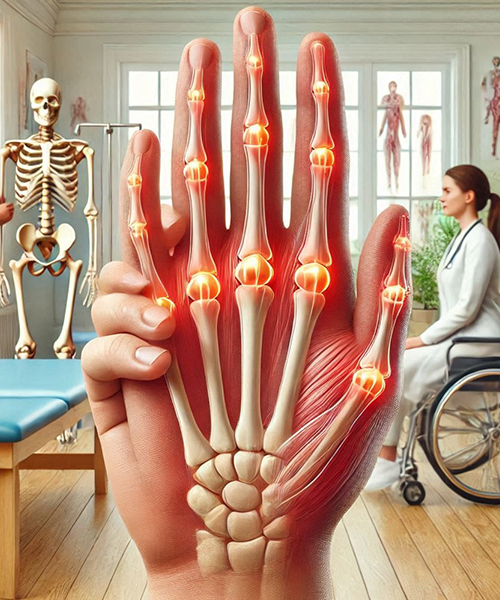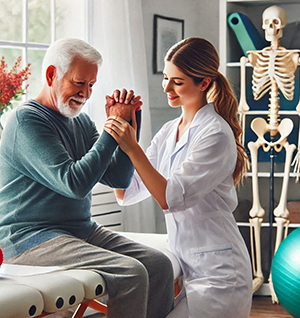

Our Advanced Treatments
Arthritis
Arthritis: Overview
Arthritis is a common condition that causes pain and inflammation in the joints. It can affect one or multiple joints and comes in many forms, with the most common types being osteoarthritis and rheumatoid arthritis. Symptoms often include joint pain, swelling, stiffness, and reduced range of motion.
Issues in Physiotherapy
Physiotherapy is essential for managing arthritis, but it can present several challenges:
-
Pain Management: Effective pain relief is crucial for patient compliance and quality of life.
-
Improving Mobility: Restoring joint function and mobility can be challenging and requires a tailored rehabilitation program.
-
Preventing Progression: Ensuring that the condition does not worsen over time is a key focus of physiotherapy.
Recovery Methods
Neurotherapy
Neurotherapy, also known as neuromuscular therapy, focuses on the nervous system's role in joint function and pain management. It can help improve muscle strength and reduce atrophy by addressing neurological factors that contribute to joint pain and stiffness. Techniques such as electrostimulation and nerve mobilization are commonly used.
Physiotherapy
Physiotherapy involves a range of interventions to manage arthritis:
-
Manual Therapy: Techniques such as massage, joint mobilizations, and manipulation help reduce pain, improve mobility, and enhance joint function.
-
Exercise Prescription: Stretching and strengthening exercises are tailored to the patient’s needs to restore function, improve flexibility, and reduce stiffness.
-
Therapeutic Modalities: Use of ice, heat, ultrasound, and electrical stimulation to reduce pain and inflammation.
Orthopedic Treatment
Orthopedic treatment may be necessary for severe arthritis:
-
Medications: Anti-inflammatory and pain-relief medications can help manage symptoms.
-
Joint Injections: Corticosteroid injections can provide temporary relief of pain and inflammation.
-
Surgical Intervention: Surgery may be needed to repair or replace severely damaged joints, particularly in cases where joint function is significantly compromised.
-
Post-Surgical Rehabilitation: A structured rehabilitation program is essential for recovery after surgery to restore joint function and strength.
Laser Therapy
Laser therapy uses low-level lasers to reduce pain and inflammation and promote healing. It can be particularly effective for managing arthritis symptoms by enhancing tissue repair and reducing recovery time.
Conclusion
Managing arthritis involves a combination of appropriate therapy, medications, and lifestyle modifications. Each treatment method has its own benefits and can be tailored to the patient's specific needs to ensure effective management and improved quality of life. For comprehensive solutions and expert care, Aashray Advanced Physiotherapy offers specialized services to help you manage arthritis effectively. Whether through neurotherapy, physiotherapy, orthopedic treatment, or laser therapy, Aashray Advanced Physiotherapy is dedicated to providing the best possible care for your condition.
Get An Appointment
